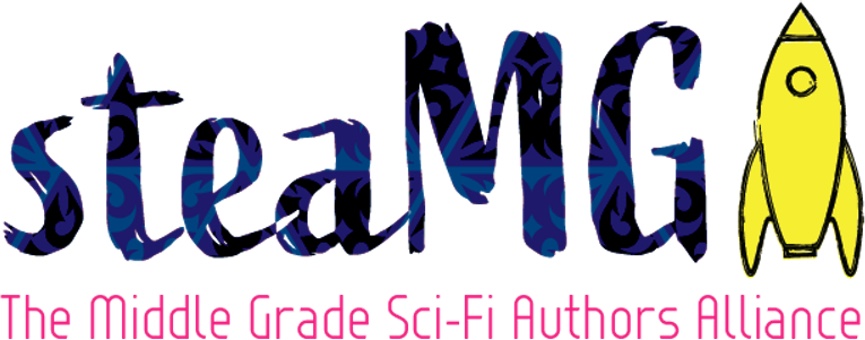I don’t do much by accident, but it’s possible that I accidentally wrote a science fiction novel.
If I were forced to categorize myself as a writer, I’d say that I write humorous fantasy and adventure novels for kids. And when I sent my editor a draft of my latest book, The Door at the End of the World, I assumed I was sending her another funny fantasy adventure. But when my editor wrote back to me, she mentioned that she hadn’t worked on sci-fi in quite a while and was excited to revisit the genre as she edited my book.
I had to read that sentence twice. Had I accidentally written sci-fi? Is accidentally writing sci-fi even possible? I wouldn’t call myself a science fiction expert, or even a devoted fan; I’m not sure that reading Ray Bradbury short stories and watching a few seasons of Black Mirror makes me qualified to talk knowledgeably about the genre, let alone to write it. And I know that many readers who are passionate about sci-fi care deeply about what is science fiction and what isn’t. There are rules about this sort of thing. Rules I certainly didn’t follow.
The Door at the End of the World is about a girl named Lucy who embarks on an adventure around eight different worlds, each connected to its neighbors by doorways cut from the fabric of space and time. One of those worlds is our own; some are magical; some are full of futuristic technologies; one is mostly full of cows. Is it a fantasy novel? Sort of, I think, though there isn’t much magic on the page, and wizards and magic carpets are mentioned only in passing. Is it science fiction? I’m still not sure. A strict definition of science fiction, in my opinion, requires story elements to be scientifically plausible, even if they’re not yet possible in our current world. Is there a scientific basis for the idea that our world exists next door to a parallel world inhabited mostly by cows? Or that honeybees could be magically trained to communicate by spelling? If there is, I haven’t seen the research. (Please send it to me right away!)
But maybe a strict definition of science fiction isn’t the most useful one for us to think about, at least not all the time. Maybe it’s more helpful to think about the role that science fiction can play in young readers’ lives. Like its relatives fantasy fiction and speculative fiction, science fiction transports readers to new worlds. It considers the serious issues of our own society in a brand-new context, making those issues more accessible to young people and challenging readers with questions about ethics, morality, and human nature. It teaches readers to ask what if? and why not? It encourages them to dream about all the futures that might be possible—and warns them about the futures they might stumble into if they’re not paying attention.
If I were a librarian categorizing books by genre, I’m still not sure I’d put a Science Fiction sticker on the spine of The Door at the End of the World. But I believe it does some of the important work of science fiction, helping readers think critically, ask questions, and expand their imaginations beyond the boundaries of the known universe. Whether or not my young readers grow up to be scientists, those are tools they’ll need throughout their lives—in this world or any other.
Caroline Carlson is the author of funny and fantastical books for young readers, including The Very Nearly Honorable League of Pirates trilogy, The World’s Greatest Detective, and The Door at the End of the World. Her novels have won accolades from the New York Times, the American Booksellers Association, Bank Street College of Education, the American Library Association, and Junior Library Guild, among others. Caroline holds a BA from Swarthmore College and an MFA in Writing for Children from Vermont College of Fine Arts. A Massachusetts native, she now lives in Pittsburgh, Pennsylvania with her family.
Find Caroline on her website or on Facebook, Twitter, or Instagram.

